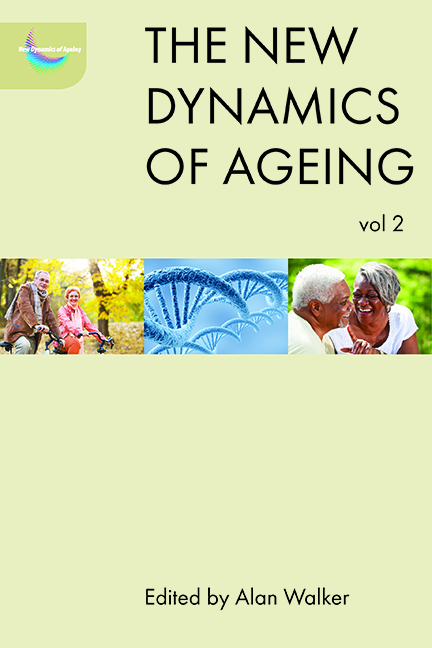eight - Towards understanding the biological drivers of cell ageing
Published online by Cambridge University Press: 13 April 2022
Summary
Introduction
Ageing of the human body results in gradual loss of tissue and organ function, with consequent frailty and illness leading to poor quality of later life for many older people. Such ageing is thought to result from an accumulation of senescent cells that are unable to divide, leading to failure to replenish or repair the body – such non-dividing cells are said to be ‘senescent’. In this New Dynamics of Ageing (NDA)-funded project, we aimed to investigate what causes cell senescence at the very fundamental level of the genes involved and the proteins they encode.
The human body is composed of trillions of cells, some of which are as old as the individual and some of which are renewed on an almost daily basis (Spalding et al, 2005). Cells of the same type are organised into tissues, and then organs are made up of different types of tissues comprising a range of cells with highly specialised functions. Organs such as the heart cooperate with other tissue and organs within the body to form organ systems such as the cardiovascular system.
The health of the individual is intimately linked to the health of each organ system, organ and tissue, which depends ultimately on the correct functioning of the cells comprising each component. While the experience of ageing varies hugely between individuals, according to an inextricable combination of genetics, environment and lifestyle, it is an incontrovertible fact that people's physical and often mental functionality diminishes with increasing chronological age; whether one likes it or not, ageing is the single biggest risk factor for morbidity and death, and many older people are living with a range of co-morbidities (multiple different diseases) that seriously affect their quality of life and risk of death (Pilotto et al, 2012). For example, the primary causes of admissions to care homes are stroke, dementia and incontinence (van Rensbergen and Nawrot, 2010; Maxwell et al, 2013). Major killers in later life are cardiovascular disease (ischaemic heart disease and stroke) and cancer (WHO, 2014), usually involving a long period of ill health prior to death.
- Type
- Chapter
- Information
- The New Dynamics of Ageing Volume 2 , pp. 131 - 154Publisher: Bristol University PressPrint publication year: 2018



